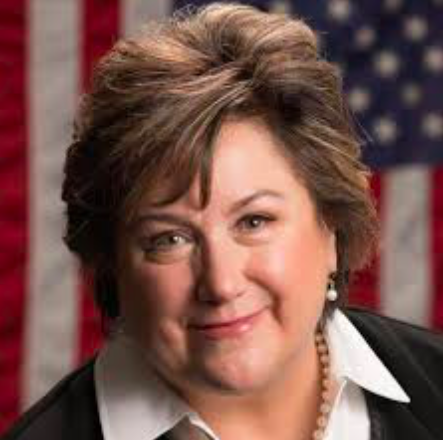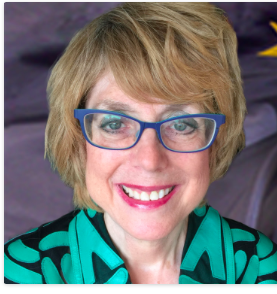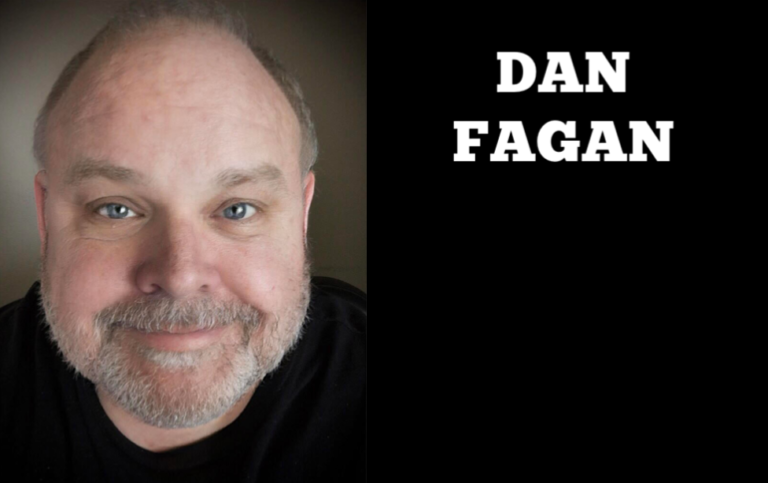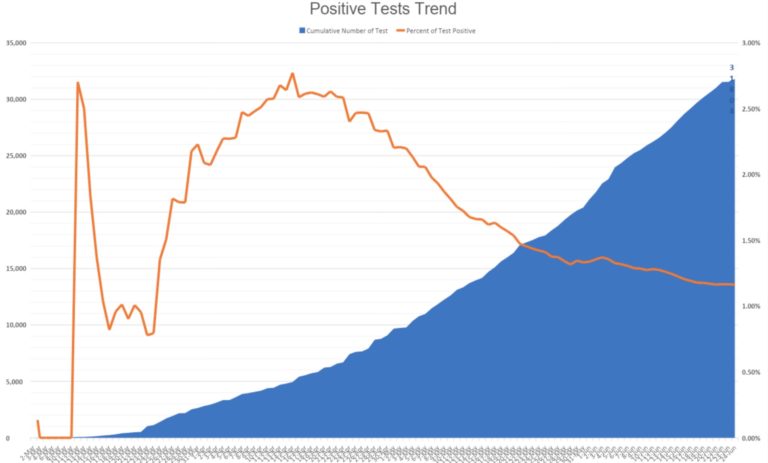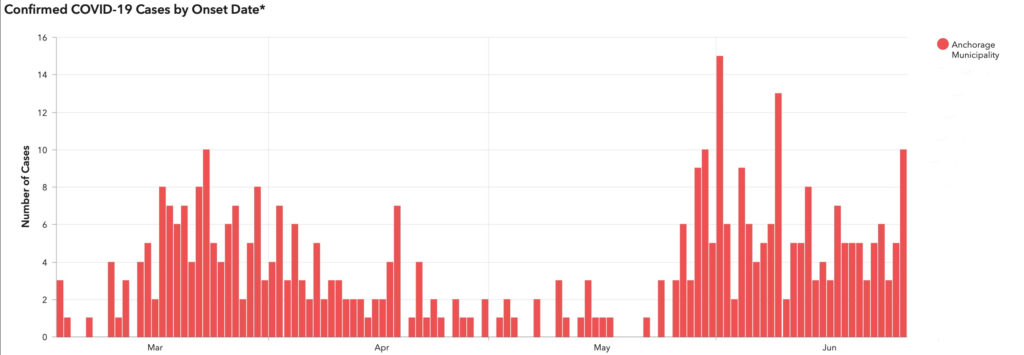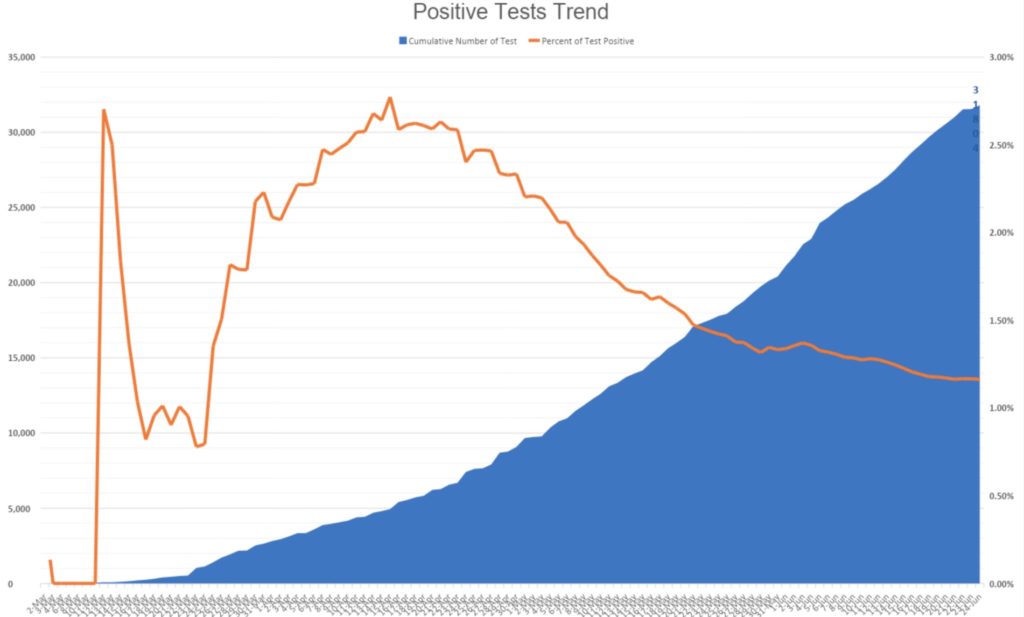By DAN FAGAN
There’s a theory floating around by some infectious disease specialists that COVID-19 is losing its virulence, potency, and ability to kill.
The media doesn’t typically like good news so many of you may not have heard of this. Media types may be reluctant to report on such things, worried you’ll stop wearing a mask, stop distancing, or stay home. They’d prefer you remain in a fetal position in the corner of your bedroom shivering and shaking, terrified the coronavirus will get you next.
Most media types lean left. If we know anything about leftists it is this: they don’t trust you and have appointed themselves your protector and are constantly trying to save you from yourself. Google “Anchorage Rep. Jennifer Johnson, dividend check, and Bush, Alaska.” You’ll see what I mean.
The media fearmongers are trying to get us all worked up about the increase in COVID-19 positive tests. 194,190 tested positive for COVID-19 on Friday, June 16. That was the highest number of positive tests in one day so far.
But it’s important to note that also on that Friday, the COVID-19 daily death rate was close to half of what it was globally at its peak two and a half months ago on April 17. On that day, the virus killed 8,470 souls in one day. The global daily death toll average has decreased considerably since its peak on April 17.
We’ve gone from a one-day high death toll of 8,470 to Friday’s number of 4,893. And that number has consistently dropped over the past two and a half months despite positive tests steadily increasing.
We still have too many fatalities and each one is a tragedy. But the important point is many more are testing positive and yet the daily death toll continues to plummet. I’m sure you haven’t read that in the Anchorage Daily News or heard it reported on KTUU.
[Read: Follow the science? Anchorage COVID-19 rate is stunningly low]
We are also seeing the declining global COVID-19 daily death rate in America even though positive tests continue to rise here too. On Friday, a whopping 47,341 people tested positive for the coronavirus in America. That was the highest total in our country of positive tests so far. Compare Friday’s 47,341 positive tests to June 1, when 22,420 tested positive in one day. Positive tests have doubled this month thus far.
The daily COVID-19 death toll peaked on April 21, when 2,749 died of the virus that day in America. On Friday, the day the U.S. saw the most positive tests to date, the CDC reported 663 deaths from the coronavirus. That’s a 75% decrease in the COVID-19 daily death toll from its peak on April 21 in the U.S.
Some may argue the increase in positive tests may eventually lead to the daily death toll going back up. But Italian Dr. Alberto Zangrillo says the virus’ potency has diminished compared to when it hit his hospital earlier this year. Zangrillo was right in the middle of the coronavirus outbreak when it overwhelmed hospitals in Milan, Italy.
“In reality, the virus clinically no longer exists in Italy,” Zangrillo told Reuters News service. “The swabs that were performed over the last 10-days showed a viral load in quantitative terms that was absolutely infinitesimal compared to the ones carried out a month or two months ago.”
Dr. Matteo Bassetti, a Yale graduate and one of Italy’s most prominent infectious disease experts agrees with Zangrillo. Bassetti described the virus as an aggressive tiger dwindled into a wild cat.
“Even elderly patients, aged 80 or 90, are now sitting up in bed and they are breathing without help. The same patients would have died in two or three days before, “said Bassetti.
14 Alaskans have lost their lives to the coronavirus, four out of state. All four of the ones who died out of state were residents living out of state in long-term care facilities.
So, that means Alaska has had one in-state COVID-19 death since May 9, which is 49-days ago. The last COVID-19 fatality was a patient at the Providence Transitional Care Center in East Anchorage. Close to 40% of all U.S. COVID-19 related deaths came from nursing home and long-term health care facilities.
As of this writing, 883 Alaskans have tested positive for the virus. 348 patients are still active, with the rest recovered.
As of Sunday there were a total of 7 people hospitalized in Anchorage hospitals suspected of having the coronavirus. Anchorage has 1,100 hospital beds with close to 40% empty. The city has 121 ICU beds, more than half are empty. (These numbers are dynamic, changing daily).
Meanwhile, Anchorage Mayor Ethan Berkowitz is using the full force of government to require you to wear a mask.
This, from a leader with the propensity to target drivers going three miles over the speed limit and soak them with costly tickets. He’s the same guy who gives a pass to the drug- and alcohol-addicted to trespass, defecate, publicly fornicate, and steal to support their habits. Berkowitz also does not seem interested in arresting the drug dealers who prey on the ever-growing addicted living on the streets of Anchorage.
[Read: Descent into depravity, as Summer of Love, lawlessness comes to Anchorage]
Berkowitz’s so-called “emergency order” requires people to wear masks beginning Monday. You must wear a mask at restaurants, grocery stores, salons, and while riding on public transportation. The mayor did not specify whether, while wearing a mask at a restaurant, you would have to reapply it between bites and sips of your wine.
As mayor, Berkowitz has looked the other way as street people live a lawless existence destroying their own lives and ruining neighborhoods they invade and occupy. The mayor describes them as victims as he virtue signals his compassion which is nothing more than disguised cruelty.
But get caught without a mask? Berkowitz transforms into Wyatt Earp.
Dan Fagan hosts a radio show on Newsradio 650 KENI from 5:40 to 8 A.M.



